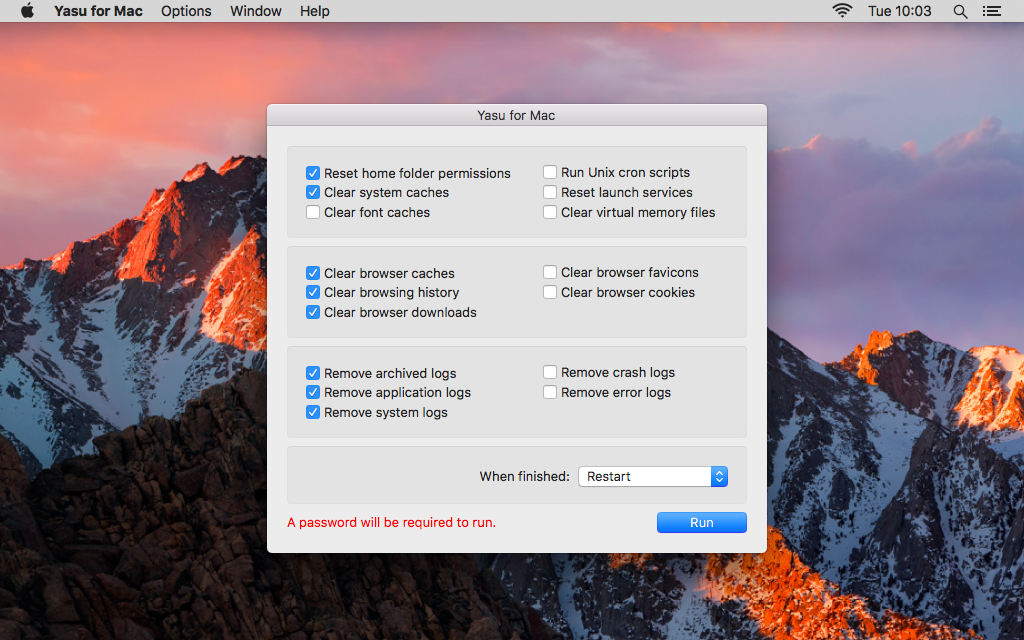
Yasu is a very excellent app favored by macOS users, and the latest version of Yasu is compatible with macOS Sierra that was released some time ago. To install it smoothly, first you should remove the old version of Yasu. But not all macOS users know how to completely remove Yasu. Most people drag and drop Yasu.app on the trash icon in the dock directly to remove Yasu, which is a wrong. Incorrect solution to remove Yasu will leave many leftover files. So how to correctly and completely remove Yasu? We will highlight several common removing solutions in the following sections.
1> Solution 1: Manually Removing Yasu
Manually Removing Yasu is a complicated thing, for you need to find its associated files/floders and delete them. Like configuration files, service programs, background programs, dynamic link libraries, log files, descriptive documents, framework files, cache files, driver files etc. So how to find these files/folders to delete? We will introduce two ways as below:
1.1> You can use a build-in command of macOS “find”. Its function is searching all files/folders on macOS. Moreover, the command owns powerful and flexible parameters that can enhance the searching capability. For example, typing following command line is able to find files/folders which are associated with Yasu.
sudo find / -name “*Yasu*”
And then wait patiently for about one or two minutes, all of the files/folders associated with xxx that you want to delete are listed on Terminal.
1.2> If you do not like to use command line, macOS also provides some graphical user interface (GUI) tools (e.g., Finder, Spotlight) for searching for you. These tools perform the same function as “find” command.
We can find all of the files/folders associated with xxx by two ways as above, and then use the “rm” command to remove them.
1.1 In Terminal, typing the “rm” command like this:
sudo rm -rf /Applistions/Yasu.app
sudo rm -rf /Library/Applistion Support/Yasu
this will delete Yasu.app and Yasu.
1.2 To delete special files, such as Kext files, you must use “kextunload” command to stop them befor use “rm” command to delete them.
sudo kextunload /System/Library/Extensions/kext files of Yasu
sudo rm -rf /System/Library/Extensions/Yasu.kext
1.3 Some files have enabled the locked attribute, so you can neither drag them to the Trash nor use the “rm” command to delete them. In such a case, you can disable locked attribute by command, which is as follows:
chflags -R nouchg /PATH/TO/DIRECTORY/WITH/LOCKED/FILES/
* chflags = change flags on files/folders such as “locked”
* -R = recursive or for everything and follow directories within the specified directory
* nouchg = means the file can be changed
* /PATH/ = of course is the path to the files you want to change.
By all accounts, manually removing Yasu is not appropriate to the most macOS users, because macOS will crash if you make mistakes in the course of manually removing Yasu. We usually recommend you to use Automatic Removal Tool.
2> Solution 2: Automatically Removing Yasu
macOS has a few professional automatic removal tools at the moment. And MacRemover still is your first choice, it has powerful removing function and easy operation.
2.1 Download and install MacRemover.
2.2 Launch MacRemover and select Yasu.app from the apps listview on the main interface of MacRemover.
2.3 Click “Run Analysis” button to analyze files/floders of Yasu.app.
2.4 Click “Complete Uninstall” button to delete all files/floders.
